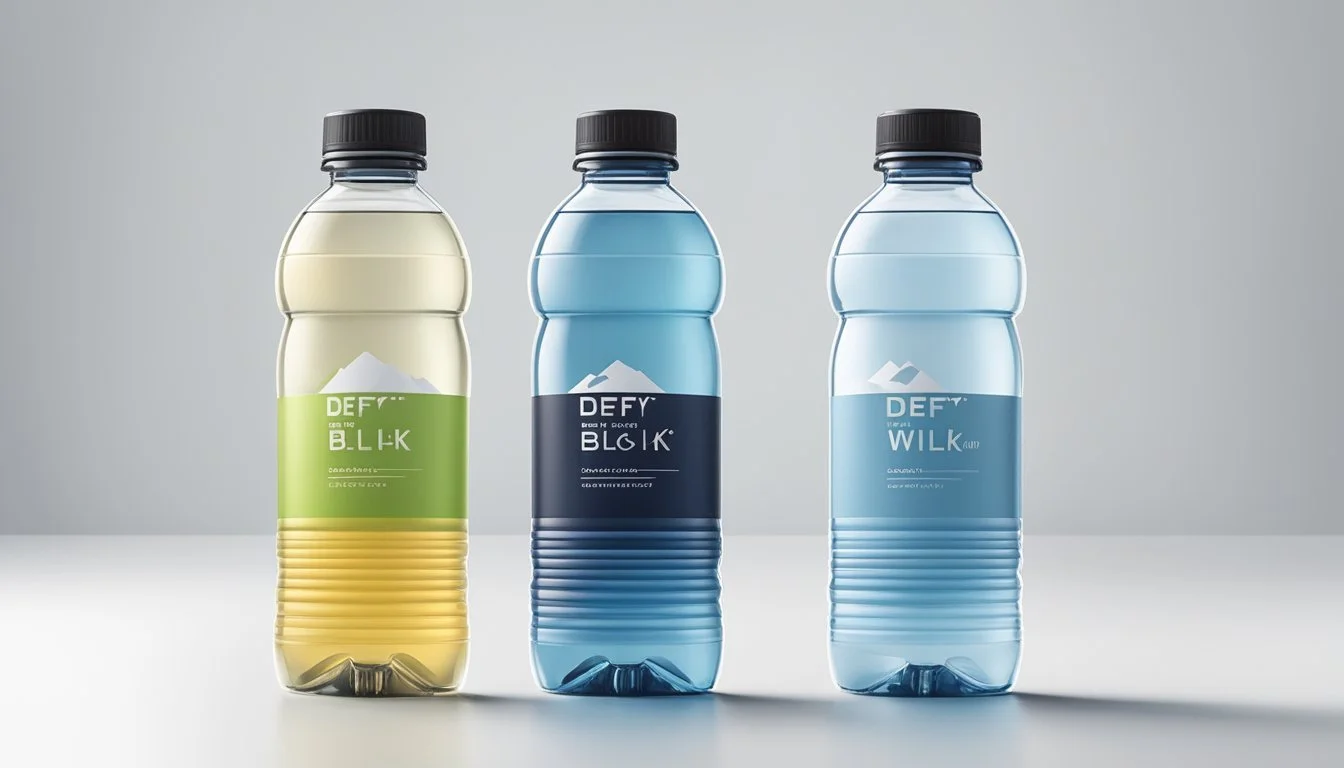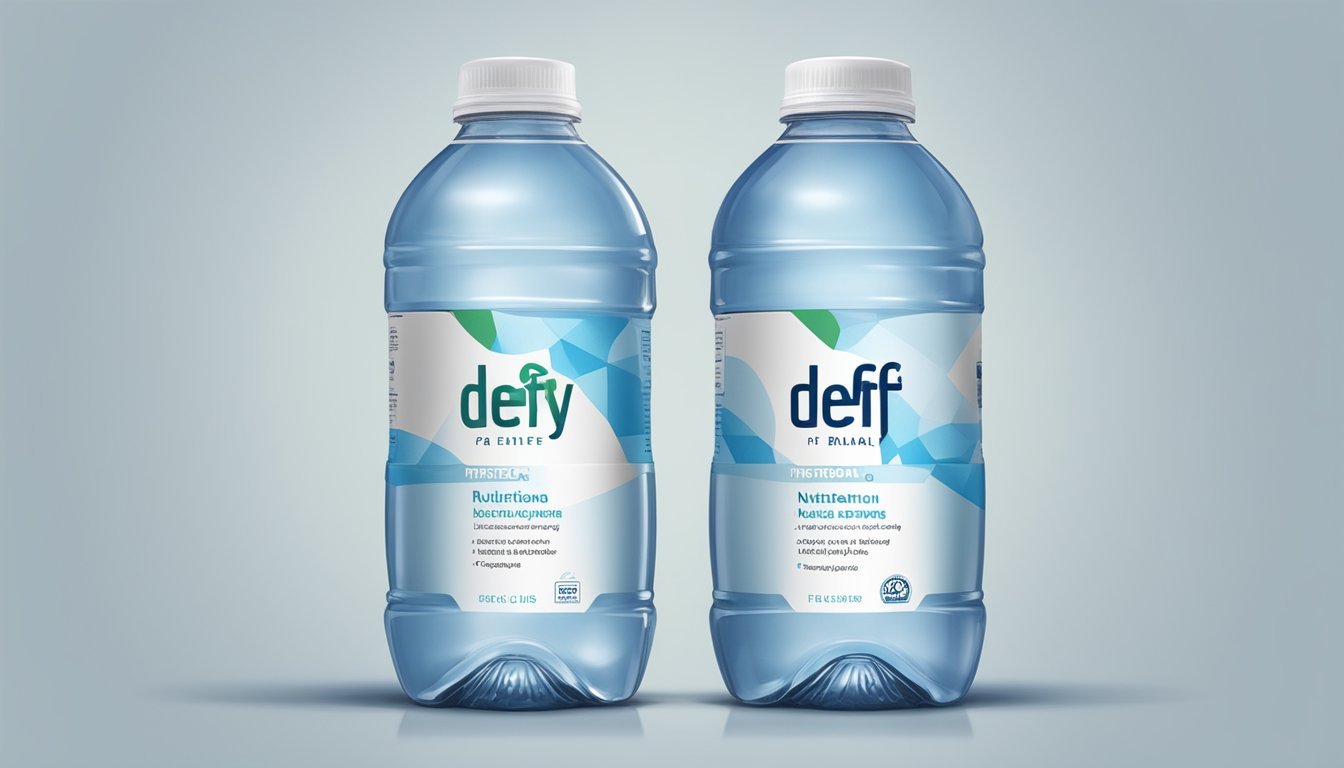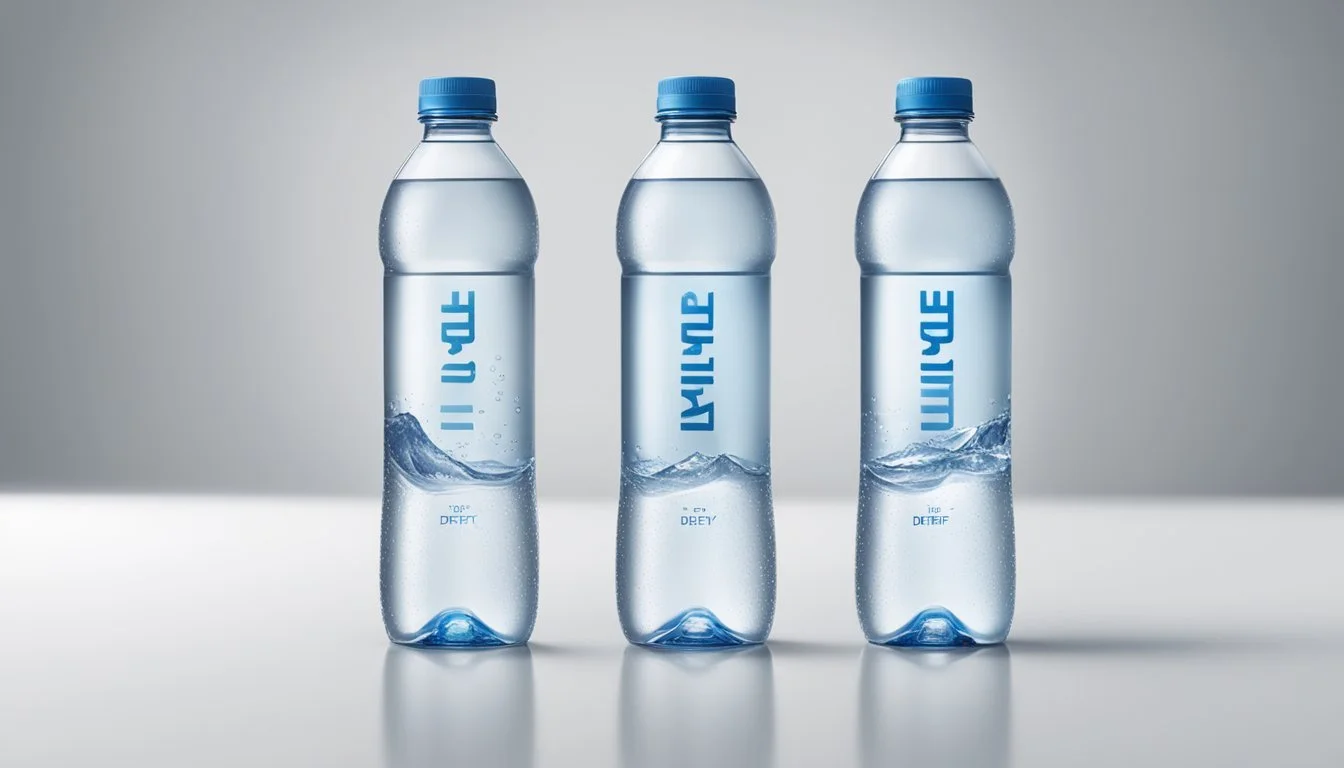Defy vs. Blk
Comparing Premium Bottled Waters
Choosing the right bottled water can make a significant difference in health and hydration. Two popular contenders in the market are Defy and Blk. Defy water boasts an impressive alkalinity and is infused with electrolytes, making it a prime choice for athletes and health enthusiasts alike.
Blk water, on the other hand, stands out due to its striking black color, which comes from the infusion of fulvic trace minerals. These minerals are claimed to have various health benefits, which intrigue consumers looking for something beyond the ordinary. The unique appearance of Blk also sets it apart from conventional bottled waters.
In comparing these two brands, one must consider not just the aesthetic appeal but the potential health benefits they offer. If you value enhanced hydration and a boost of essential minerals, Blk might be the better option for you.
Comparing Defy and Blk Bottled Water
Defy and Blk bottled waters are both distinct in their own ways, with different characteristics in terms of origins, mineral content, pH levels, and taste profiles. These factors make each brand unique and help consumers determine which one might best suit their preferences.
Brand Overview
Defy is known for its emphasis on performance and recovery, positioning itself as a premium option for athletes and active individuals.
Blk stands out due to its striking black color and claims of enhanced health benefits from fulvic trace minerals. Both brands offer a distinctive take on hydration but cater to slightly different markets.
Source and Origin
Defy sources its water from carefully selected springs that emphasize purity and natural mineral composition. They focus on ensuring the water retains its natural quality through minimal processing.
Blk sources its water from springs before infusing it with fulvic trace minerals that give it its unique black appearance. The origin and infusion process are designed to create a product that stands out not just visually but also functionally.
Mineral Content Comparison
Defy water contains a balanced mix of essential minerals like magnesium, potassium, and calcium. These minerals support hydration and bodily functions, catering particularly to those with an active lifestyle.
Blk water’s claim to fame is its infusion of fulvic trace minerals, which are touted for their potential health benefits. While it may not be as traditional in its mineral composition, it boasts elements that are unique to its branding.
pH Level and Alkalinity
Defy maintains a pH level that aligns closely with the body’s natural pH, typically around 7. This makes it a neutral choice with no strong alkaline or acidic qualities.
Blk takes a step towards the alkaline side with its infused water, often finding itself around a pH of 9. This level of alkalinity is preferred by some consumers seeking to balance their body’s pH.
Taste Profile
Defy water is noted for its clean and crisp taste, often described as refreshing with no aftertaste. This makes it an easy choice for those who prefer water with a neutral, light flavor.
Blk water, despite its color, has a surprisingly neutral taste. Some consumers report a slight earthy hint due to the fulvic trace minerals but it generally remains palatable and comparable to regular bottled water.
Nutritional Value and Health Benefits
This section compares the nutritional value and health benefits of Defy and Blk bottled waters, focusing on electrolytes, hydration, fulvic acid, humic acid, trace minerals, antioxidants, and their roles in gut health and immune function.
Electrolytes and Hydration Efficacy
Defy and Blk waters both contain electrolytes, crucial for effective hydration.
Defy water includes essential electrolytes like sodium, potassium, and magnesium, which help maintain fluid balance, support muscle function, and aid in nerve signaling. Regular consumption can be beneficial for athletes or individuals engaging in strenuous activities.
Blk water, in addition to its known electrolytes, may help stabilize the body's pH due to its alkaline nature. This can potentially enhance overall hydration efficacy, particularly in maintaining the body's natural fluid levels.
Fulvic Acid, Humic Acid, and Trace Minerals
Blk water is enriched with fulvic and humic acids, derived from organic matter decomposition.
Fulvic acid plays a significant role in removing heavy metals and toxins from the body, supporting the body’s detoxification processes.
Humic acid contributes trace minerals, important in maintaining cellular health and metabolic functions.
These components are absent in Defy water, giving Blk a potential edge in providing additional nutrients.
Antioxidant Properties
The presence of fulvic acid in Blk water gives it antioxidant properties.
Antioxidants are crucial in combating oxidative stress and neutralizing harmful free radicals in the body. This can help in reducing inflammation, slowing aging processes, and improving overall cellular health.
Defy water may lack specific antioxidants but can still contribute to health through its balanced electrolyte content.
Contribution to Gut Health and Immune Function
Blk water's inclusion of fulvic and humic acids has shown positive effects on gut health.
By promoting the growth of beneficial gut bacteria, these acids can improve digestive health and nutrient absorption. Enhanced gut health also bolsters the immune system.
Defy water primarily supports hydration and does not specifically contain ingredients targeting gut health or immune function, focusing more on hydration efficiency through electrolytes.
Packaging and Environmental Impact
Defy and Blk offer differences in bottle materials, sustainability practices, and the impact these choices have on the environment and consumer behavior.
Bottle Materials and Sustainability
Defy: Primarily uses PET plastic, known for its recyclability but also for its environmental footprint. Despite being widely recyclable, the production and breakdown of PET contribute to pollution and CO2 emissions.
Blk: Markets its bottles using BPA-free PET plastic. Its unique selling point is the inclusion of fulvic trace minerals, which give the water its black color. Although innovative, this does not significantly change the environmental impact compared to regular PET bottles.
Brand Material Used Environmental Impact Defy PET Plastic Moderate to High Blk BPA-Free PET Similar to standard PET bottles
Environmental Policies
Defy: Has implemented several environmentally friendly policies, including partnerships for improving waste management and promoting recycling. The company also invests in developing more sustainable packaging options and reducing its carbon footprint through various initiatives.
Blk: Focuses less on its packaging improvements and more on the unique selling proposition of their fulvic-enhanced water. They have basic recycling information available but lack substantial public commitments to sustainability compared to Defy.
Consumer Choices and Impact
Consumers often base their decisions on a combination of environmental impact and product uniqueness.
Defy: Attracts eco-conscious buyers due to their clearer sustainability efforts and more transparent environmental policies. The brand promotes recycling and offers initiatives that appeal to environmentally aware consumers.
Blk: Appeals to consumers interested in health benefits and uniqueness rather than purely environmental concerns. The distinctive black water attracts curiosity, although it doesn't necessarily lead to a significant reduction in environmental impact.
Both brands offer recyclable packaging, but the depth of their sustainability initiatives can influence consumer choices differently.
Economic Considerations
When comparing Defy and blk. water, the economic aspects play a critical role in influencing consumer choices. This analysis reviews price points, value for money, and market availability for both brands.
Price Point Analysis
blk. water is positioned as a premium brand with its bottles priced between $2-4 for a 16-24oz container. This positions it at a significant premium over mass-market brands, which generally sell for much less. Defy, meanwhile, is marketed as a mid-tier brand, typically found in the $1.50-3 range for similar sizes. For budget-conscious consumers, the price difference is a substantial factor.
Comparing blk. water to other hydration sources reveals a noticeable price premium. The expense is justified by the brand's claims of enhanced trace minerals and superior quality. In contrast, Defy offers an economically viable option without sacrificing basic hydration needs, making it more accessible to a broader audience.
Value for Money
The value proposition of these brands diverges when considering the price per liter versus the nutrient content. blk. water's infusion of fulvic trace minerals is touted as its primary selling point, arguing for a higher cost due to its perceived health benefits. Customer reviews often highlight blk.'s unique features but raise concerns about its cost-effectiveness.
Defy's value lies in striking a balance between cost and quality. It does not promise the extensive mineral benefits of blk. water but maintains a standard of purity and taste that satisfies general hydration needs. By focusing on this balance, Defy targets consumers who seek reliable bottled water without a hefty price tag.
Market Availability
In terms of market penetration, Defy is more widely available in both brick-and-mortar stores and online marketplaces. It can be found in a variety of retail chains, enhancing its accessibility for everyday consumers. In contrast, blk. water, being a niche product, is often limited to specialty stores and certain online retailers, which can restrict its availability to a broader customer base.
The distribution strategy of blk. water emphasizes exclusivity, which aligns with its premium positioning but can limit its reach. Defy's approach of widespread availability ensures that it meets the needs of a larger demographic, bolstering its presence in the bottled water market.
Analyzing Third-Party Test Results
Third-party test results offer critical insights into the purity, contamination levels, and nutrient claims of bottled water brands, providing an objective basis for comparison.
Purity and Contamination
Third-party laboratory tests play a pivotal role in analyzing the purity of bottled water. For Defy and Blk, such tests ensure that the water is free from harmful contaminants. Recent tests have identified toxic PFAS chemicals in several bottled water brands, but specific results for these two brands must be obtained to confirm their status.
Testing for microplastics has also become a significant concern. Bottled water from leading brands like Aquafina, Fiji, and Smartwater is often scrutinized for these particles. Ensuring that Defy and Blk maintain lower levels of microplastics compared to competitors like Dasani and Evian is essential for their reputation and consumer trust.
Verification of Nutrient Claims
Nutrient claims on bottled water labels warrant verification through independent testing. Defy and Blk market themselves with unique health benefits, which must be validated by third-party assessments. The presence of essential minerals such as magnesium, calcium, and potassium is often highlighted in bottled water marketing.
Comparative analysis with other brands such as Fiji and Smartwater, which boast high mineral content, aids in verifying these claims. Published test results should showcase the actual nutrient levels, ensuring transparency. Defy and Blk stand to gain credibility if their nutrient claims are supported by these independent assessments, setting them apart from brands that may exaggerate benefits without scientific backing.
Comparison with Competitor Brands
Third-party test results also facilitate direct comparison with competitor brands. By evaluating test data, consumers can make informed choices based on purity, contamination, and nutrient content. Defy and Blk should be compared against established brands like Aquafina, Dasani, Evian, and Fiji.
Tables and charts displaying contaminant levels, microplastics content, and mineral presence in these brands offer clear insights. For instance, Evian and Fiji are renowned for their low contaminant levels and high mineral content. Defy and Blk should aim to match or exceed these benchmarks to remain competitive. Scientific test results thus play a key role in positioning Defy and Blk in the bottled water market.
More About Defy
Mountain Valley Spring Water vs Defy: Which Bottled Water is Better?
Whole Foods Italian Still Mineral water vs Defy: Which Bottled Water is Better?






